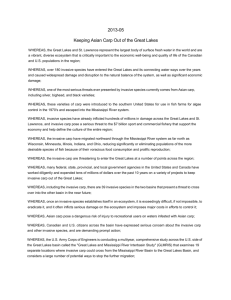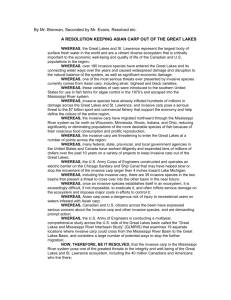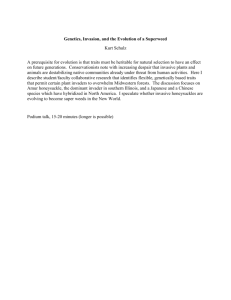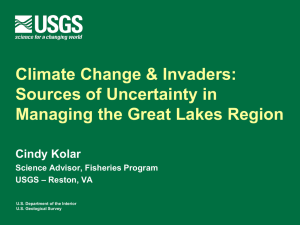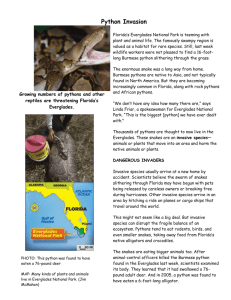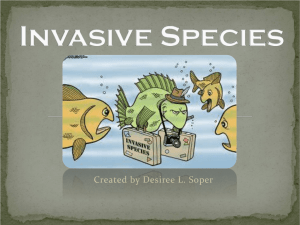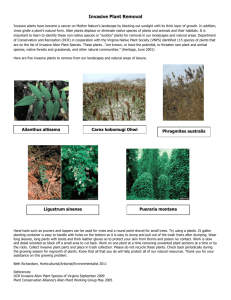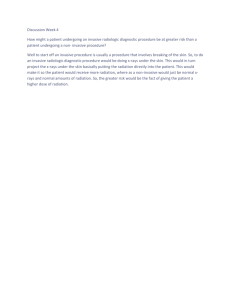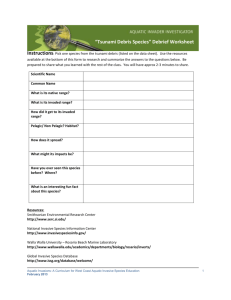Asian carp resolution
advertisement
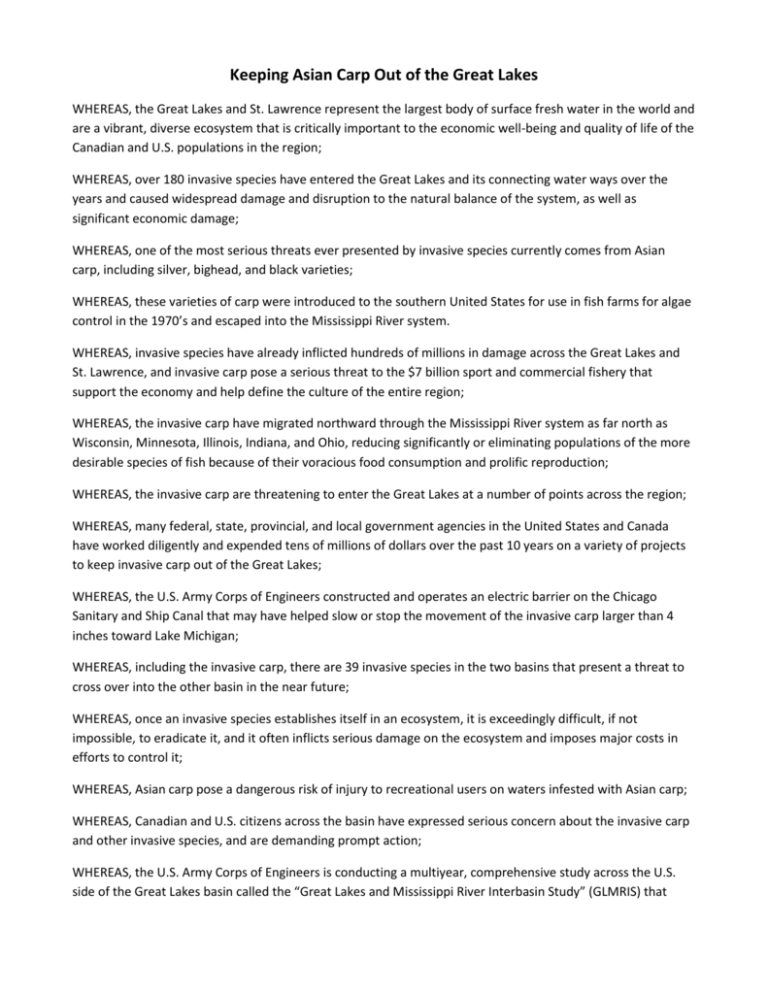
Keeping Asian Carp Out of the Great Lakes WHEREAS, the Great Lakes and St. Lawrence represent the largest body of surface fresh water in the world and are a vibrant, diverse ecosystem that is critically important to the economic well-being and quality of life of the Canadian and U.S. populations in the region; WHEREAS, over 180 invasive species have entered the Great Lakes and its connecting water ways over the years and caused widespread damage and disruption to the natural balance of the system, as well as significant economic damage; WHEREAS, one of the most serious threats ever presented by invasive species currently comes from Asian carp, including silver, bighead, and black varieties; WHEREAS, these varieties of carp were introduced to the southern United States for use in fish farms for algae control in the 1970’s and escaped into the Mississippi River system. WHEREAS, invasive species have already inflicted hundreds of millions in damage across the Great Lakes and St. Lawrence, and invasive carp pose a serious threat to the $7 billion sport and commercial fishery that support the economy and help define the culture of the entire region; WHEREAS, the invasive carp have migrated northward through the Mississippi River system as far north as Wisconsin, Minnesota, Illinois, Indiana, and Ohio, reducing significantly or eliminating populations of the more desirable species of fish because of their voracious food consumption and prolific reproduction; WHEREAS, the invasive carp are threatening to enter the Great Lakes at a number of points across the region; WHEREAS, many federal, state, provincial, and local government agencies in the United States and Canada have worked diligently and expended tens of millions of dollars over the past 10 years on a variety of projects to keep invasive carp out of the Great Lakes; WHEREAS, the U.S. Army Corps of Engineers constructed and operates an electric barrier on the Chicago Sanitary and Ship Canal that may have helped slow or stop the movement of the invasive carp larger than 4 inches toward Lake Michigan; WHEREAS, including the invasive carp, there are 39 invasive species in the two basins that present a threat to cross over into the other basin in the near future; WHEREAS, once an invasive species establishes itself in an ecosystem, it is exceedingly difficult, if not impossible, to eradicate it, and it often inflicts serious damage on the ecosystem and imposes major costs in efforts to control it; WHEREAS, Asian carp pose a dangerous risk of injury to recreational users on waters infested with Asian carp; WHEREAS, Canadian and U.S. citizens across the basin have expressed serious concern about the invasive carp and other invasive species, and are demanding prompt action; WHEREAS, the U.S. Army Corps of Engineers is conducting a multiyear, comprehensive study across the U.S. side of the Great Lakes basin called the “Great Lakes and Mississippi River Interbasin Study” (GLMRIS) that examines 19 separate locations where invasive carp could cross from the Mississippi River Basin to the Great Lakes Basin, and considers a large number of potential ways to stop the further migration; NOW, THEREFORE, BE IT RESOLVED, that the invasive carp in the Mississippi River system pose one of the greatest threats to the integrity and well-being of the Great Lakes and St. Lawrence ecosystem, including the 40 million Canadians and Americans who live there; BE IT FURTHER RESOLVED, that preventing the invasive carp from entering the Great Lakes and St. Lawrence ecosystem needs to be approached with the greatest sense of urgency by all those responsible for dealing with this matter; BE IT FURTHER RESOLVED, that physical separation is the most effective way to keep invasive carp from entering Lake Michigan through the Chicago Area Waterway System, and such barriers would also prevent the movement of many other invasive species from one basin to the other; BE IT FURTHER RESOLVED, that physical separation is feasible and can be done in a way that maintains or enhances water quality, flood control, and transportation in the system; BE IT FURTHER RESOLVED, that additional steps must be taken in the interim to keep invasive carp out while the long term solution is put in place; NOW THEREFORE BE IT RESOLVED that the (municipality name here) strongly urges all parties involved to identify a preferred solution to the invasive carp issue and move forward to implement that solution with the greatest sense of urgency. Adopted on _____________________ by the (municipality and/or committee name here). Vote: ______ Yeas ______ Nays ______ Absent Signed _________________________________ __________________ Dated
